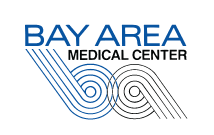Dalantercept in Treating Patients With Recurrent Ovarian Epithelial, Fallopian Tube, or Primary Peritoneal Cavity Cancer
| Status: | Active, not recruiting |
|---|---|
| Conditions: | Ovarian Cancer, Cancer, Cancer, Cancer, Cancer |
| Therapuetic Areas: | Oncology |
| Healthy: | No |
| Age Range: | 18 - Any |
| Updated: | 3/22/2019 |
| Start Date: | November 5, 2012 |
A Phase II Evaluation of Dalantercept (NSC #757172), a Novel Soluble Recombinant Activin Receptor-Like Kinase 1 (ALK-1) Inhibitor Receptor-Fusion Protein, in the Treatment of Persistent or Recurrent Epithelial Ovarian, Fallopian Tube, or Primary Peritoneal Carcinoma
This phase II trial studies the side effects and how well dalantercept works in treating
patients with ovarian epithelial, fallopian tube, or primary peritoneal cavity cancer that
has returned. Dalantercept may stop the growth of tumor cells by blocking some of the enzymes
needed for cell growth. Dalantercept may also stop the growth of tumor cells by blocking
blood flow to the tumor.
patients with ovarian epithelial, fallopian tube, or primary peritoneal cavity cancer that
has returned. Dalantercept may stop the growth of tumor cells by blocking some of the enzymes
needed for cell growth. Dalantercept may also stop the growth of tumor cells by blocking
blood flow to the tumor.
PRIMARY OBJECTIVES:
I. To estimate the proportion of patients who survive progression-free for at least 6 months
and the proportion of patients who have objective tumor response (complete or partial) in
patients with persistent or recurrent epithelial ovarian, fallopian tube, or primary
peritoneal carcinoma, treated with dalantercept.
II. To determine the frequency and severity of adverse events associated with treatment with
dalantercept as assessed by the Active Version of the National Cancer Institute (NCI) Common
Terminology Criteria for Adverse Events (CTCAE).
SECONDARY OBJECTIVES:
I. To determine the duration of progression-free survival (PFS) and overall survival (OS).
TERTIARY OBJECTIVES:
I. To measure the expression of vascular endothelial growth factor (VEGF), fibroblast growth
factor (FGF), platelet-derived growth factor (PDGF), transforming growth factor-beta (TGF-B),
activin receptor-like kinase 1 (ALK1), cluster of differentiation 105 (CD105), and other
markers via immunohistochemistry (IHC) and determine if there is correlation between
expression and clinical response to treatment.
II. To determine the correlation between ALK1 gene expression, other markers, and clinical
response to treatment.
III. To determine the correlation between concentration of VEGF, bone morphogenetic protein
(BMP)9, BMP10, and ALK1 in pre-cycle 1 plasma using an enzyme-linked immunosorbent assay
(ELISA), and clinical response to treatment.
OUTLINE:
Patients receive dalantercept subcutaneously (SC) on day 1. Courses repeat every 3 weeks in
the absence of disease progression or unacceptable toxicity.
After completion of study treatment, patients are followed up every 3 months for 2 years and
then every 6 months for 3 years.
I. To estimate the proportion of patients who survive progression-free for at least 6 months
and the proportion of patients who have objective tumor response (complete or partial) in
patients with persistent or recurrent epithelial ovarian, fallopian tube, or primary
peritoneal carcinoma, treated with dalantercept.
II. To determine the frequency and severity of adverse events associated with treatment with
dalantercept as assessed by the Active Version of the National Cancer Institute (NCI) Common
Terminology Criteria for Adverse Events (CTCAE).
SECONDARY OBJECTIVES:
I. To determine the duration of progression-free survival (PFS) and overall survival (OS).
TERTIARY OBJECTIVES:
I. To measure the expression of vascular endothelial growth factor (VEGF), fibroblast growth
factor (FGF), platelet-derived growth factor (PDGF), transforming growth factor-beta (TGF-B),
activin receptor-like kinase 1 (ALK1), cluster of differentiation 105 (CD105), and other
markers via immunohistochemistry (IHC) and determine if there is correlation between
expression and clinical response to treatment.
II. To determine the correlation between ALK1 gene expression, other markers, and clinical
response to treatment.
III. To determine the correlation between concentration of VEGF, bone morphogenetic protein
(BMP)9, BMP10, and ALK1 in pre-cycle 1 plasma using an enzyme-linked immunosorbent assay
(ELISA), and clinical response to treatment.
OUTLINE:
Patients receive dalantercept subcutaneously (SC) on day 1. Courses repeat every 3 weeks in
the absence of disease progression or unacceptable toxicity.
After completion of study treatment, patients are followed up every 3 months for 2 years and
then every 6 months for 3 years.
Inclusion Criteria:
- Patients must have recurrent or persistent epithelial ovarian, fallopian tube, or
primary peritoneal carcinoma; histologic documentation of the original primary tumor
is required via the pathology report
- All patients must have measurable disease as defined by Response Evaluation Criteria
in Solid Tumors (RECIST) 1.1; measurable disease is defined as at least one lesion
that can be accurately measured in at least one dimension (longest diameter to be
recorded); each lesion must be >= 10 mm when measured by computed tomography (CT),
magnetic resonance imaging (MRI) or caliper measurement by clinical exam; or >= 20 mm
when measured by chest x-ray; lymph nodes must be >= 15 mm in short axis when measured
by CT or MRI
- Patient must have at least one "target lesion" to be used to assess response on this
protocol as defined by RECIST 1.1; tumors within a previously irradiated field will be
designated as "non-target" lesions unless progression is documented or a biopsy is
obtained to confirm persistence at least 90 days following completion of radiation
therapy
- Patients must not be eligible for a higher priority Gynecologic Oncology Group (GOG)
protocol, if one exists; in general, this would refer to any active GOG phase III
protocol or Rare Tumor protocol for the same patient population
- Patients who have received one prior regimen must have a GOG performance status of 0,
1, or 2; patients who have received two prior regimens must have a GOG performance
status of 0 or 1
- Recovery from effects of recent surgery, radiotherapy, or chemotherapy:
- Patients should be free of active infection requiring antibiotics (with the
exception of uncomplicated urinary tract infection [UTI])
- Any hormonal therapy directed at the malignant tumor must be discontinued at
least one week prior to registration; continuation of hormone replacement therapy
is permitted
- Any other prior therapy directed at the malignant tumor, including immunologic
agents, must be discontinued at least three weeks prior to registration; therapy
with nitrosoureas or mitomycin must be discontinued at least six weeks prior to
registration
- Any prior radiation therapy must be discontinued at least four weeks prior to
registration
- At least 4 weeks must have elapsed since the patient underwent any major surgery
(e.g., major: laparotomy, laparoscopy); there is no delay in treatment for minor
procedures (e.g., central venous access catheter placement)
- Prior therapy:
- Patients must have had one prior platinum-based chemotherapeutic regimen for
management of primary disease containing carboplatin, cisplatin, or another
organoplatinum compound; this initial treatment may have included intraperitoneal
therapy, consolidation, biologic/targeted (non-cytotoxic) agents (e.g.,
bevacizumab) or extended therapy administered after surgical or non-surgical
assessment
- Patients are allowed to receive, but are not required to receive, one additional
cytotoxic regimen for management of recurrent or persistent disease
- Patients who have received only one prior cytotoxic regimen (platinum-based
regimen for management of primary disease), must have a platinum-free interval of
less than 12 months, or have progressed during platinum-based therapy, or have
persistent disease after a platinum-based therapy
- Patients are allowed to receive, but are not required to receive,
biologic/targeted (non-cytotoxic) therapy as part of their primary treatment
regimen
- Patients must have NOT received any biologic/targeted (non-cytotoxic) therapy
targeting the VEGF pathway for management of recurrent or persistent disease
- For the purposes of this study, poly (ADP-ribose) polymerase (PARP) inhibitors
will be considered ?cytotoxic?; patients are allowed to receive, but are not
required to receive, PARP inhibitors for management of primary or
recurrent/persistent disease (either alone or in combination with cytotoxic
chemotherapy); PARP inhibitors will NOT count as a prior regimen when given alone
- Absolute neutrophil count (ANC) greater than or equal to 1,500/mcl
- Platelets greater than or equal to100,000/mcl
- Hemoglobin greater than or equal to 9 g/dl
- Creatinine less than or equal to 1.5 x institutional upper limit normal (ULN)
- Sodium greater than or equal to 130 mEq/L (CTCAE version 4 [v. 4], grade 0 or 1)
- Urine protein should be screened by urinalysis; if protein is 2+ or higher, 24-hour
urine protein should be obtained and the level should be < 1000 mg (< 1.0 g/24 hrs)
for patient enrollment
- Bilirubin less than or equal to 1.5 x ULN
- Alanine aminotransferase (ALT) and aspartate aminotransferase (AST) less than or equal
to 3 x ULN
- Alkaline phosphatase less than or equal to 3 x ULN
- Albumin greater than or equal to 3 (CTCAE v. 4, grade 0 or 1)
- Prothrombin time (PT) such that international normalized ratio (INR) is less than or
equal to 1.5 x ULN (or an in-range INR, usually between 2 and 3, if a patient is on a
stable dose of therapeutic warfarin) and partial thromboplastin time (PTT) less than
or equal to 1.5 x ULN
- Left ventricular ejection fraction (LVEF) greater than 50% (measured by echocardiogram
or MUGA [multi-gated acquisition] scan)
- Patients must have signed an approved informed consent and authorization permitting
release of personal health information
- Patients must meet pre-entry requirements
- Patients of childbearing potential must have a negative pregnancy test prior to the
study entry and be practicing an effective form of contraception
Exclusion Criteria:
- Patients who have had previous treatment with dalantercept or any other anti-ALK1
(activin receptor-like kinase 1) agent
- Patients with a history of other invasive malignancies, with the exception of
non-melanoma skin cancer and other specific malignancies, are excluded if there is any
evidence of other malignancy being present within the last three years; patients are
also excluded if their previous cancer treatment contraindicates this protocol therapy
- Patients who have received prior radiotherapy to any portion of the abdominal cavity
or pelvis OTHER THAN for the treatment of ovarian, fallopian tube, or primary
peritoneal cancer within the last three years are excluded; prior radiation for
localized cancer of the breast, head and neck, or skin is permitted, provided that it
was completed more than three years prior to registration, and the patient remains
free of recurrent or metastatic disease
- Patients who have received prior chemotherapy for any abdominal or pelvic tumor OTHER
THAN for the treatment of ovarian, fallopian tube, or primary peritoneal cancer within
the last three years are excluded; patients may have received prior adjuvant
chemotherapy for localized breast cancer, provided that it was completed more than
three years prior to registration, and that the patient remains free of recurrent or
metastatic disease
- Patients with a past history of primary endometrial cancer are excluded unless all of
the following conditions are met: stage not greater than I-B; no more than superficial
myometrial invasion, without vascular or lymphatic invasion; no poorly differentiated
subtypes, including papillary serious, clear cell or other International Federation of
Gynecology and Obstetrics (FIGO) grade 3 lesions
- Patients with history or evidence upon physical exam of central nervous system (CNS)
disease, including primary brain tumor, seizures not controlled with standard medical
therapy or any brain metastases
- Serious or non-healing wound, ulcer or bone fracture
- History of abdominal fistula, gastrointestinal perforation or intra-abdominal abscess
within 6 months
- Patients requiring parenteral hydration or parenteral/total parenteral nutrition
- Patients with:
- Active bleeding (e.g., active hemoptysis, defined as bright red blood of greater
than or equal to 1/2 teaspoon [2.5 ml] in any 24 hour period within 2 weeks prior
to registration or gastrointestinal bleeding within 3 months prior to
registration)
- Hereditary hemorrhagic telangiectasia (HHT)
- Platelet function abnormality
- Autoimmune or hereditary hemolysis
- Coagulopathy
- Tumor involving major vessels (defined as any lesion invading or abutting the
wall [i.e., no fat plane evident] of major blood vessels as assessed by CT or
MRI)
- Patients receiving treatment with full dose aspirin (325mg oral daily), clopidogrel
(Plavix) or dabigatran (Pradaxa)
- Patients with peripheral edema greater than or equal to grade 1, within 4 weeks of
registration
- Patients with clinically significant cardiovascular disease:
- Uncontrolled hypertension, defined as systolic > 150 mm Hg or diastolic > 90 mm
Hg despite antihypertensive medications
- Evidence of hypertrophic cardiomyopathy
- New York Heart Association (NYHA) class II or greater congestive heart failure
(CHF)
- Any of the following within 6 months prior to study registration:
- Bypass surgery
- Stent placement
- Myocardial infarction
- Acute coronary syndrome/unstable angina
- Hospitalization for CHF
- Serious cardiac arrhythmia requiring medication; this does not include
asymptomatic, atrial fibrillation with controlled ventricular rate
- Prolonged corrected QT (QTc) interval > 450 ms
- Prior anthracycline cumulative dose > 450 mg/m^2
- History of severe (National Cancer Institute-Common Terminology Criteria for Adverse
Events [NCI-CTCAE] v.4.0 >= grade 3) allergic or anaphylactic reaction or
hypersensitivity to recombinant proteins or Tris buffered saline
- Patients who are pregnant or nursing
- History of syndrome of inappropriate antidiuretic hormone secretion (SIADH)
- Patients who have undergone a therapeutic paracentesis within 4 weeks of registration
- Known history of positive hepatitis C virus (HCV) antibody, hepatitis B virus (HBV)
surface antigen (HBsAg) or HBV core antibody, or human immunodeficiency virus (HIV)
antibody results
- Clinically significant active pulmonary risk including pulmonary hypertension,
pulmonary embolism, or history of pulmonary edema
We found this trial at
40
sites
940 NE 13th St
Oklahoma City, Oklahoma 73190
Oklahoma City, Oklahoma 73190
(405) 271-6458

University of Oklahoma Health Sciences Center The OU Health Sciences Center is composed of seven...
Click here to add this to my saved trials
1201 Camino de Salud Northeast
Albuquerque, New Mexico 87131
Albuquerque, New Mexico 87131
(505) 272-4946

University of New Mexico Cancer Center It’s been 40 years since the New Mexico State...
Click here to add this to my saved trials
University of Mississippi Medical Center The University of Mississippi Medical Center, located in Jackson, is...
Click here to add this to my saved trials
West Michigan Cancer Center In 1994, Borgess Health Alliance and Bronson Healthcare Group opened the...
Click here to add this to my saved trials
Click here to add this to my saved trials
Seattle Cancer Care Alliance Seattle Cancer Care Alliance (SCCA) is a cancer treatment center that...
Click here to add this to my saved trials
Abington Memorial Hospital Abington Memorial Hospital (AMH) is a 665-bed, regional referral center and teaching...
Click here to add this to my saved trials
Click here to add this to my saved trials
Case Western Reserve Univ Continually ranked among America's best colleges, Case Western Reserve University has...
Click here to add this to my saved trials
18101 Lorain Avenue
Cleveland, Ohio 44111
Cleveland, Ohio 44111
216.476.7000

Cleveland Clinic Cancer Center at Fairview Hospital Fairview Hospital is a 488-bed hospital located at...
Click here to add this to my saved trials
Cleveland Clinic Foundation The Cleveland Clinic (formally known as The Cleveland Clinic Foundation) is a...
Click here to add this to my saved trials
Decatur Memorial Hospital An American flag bearing only 48 stars waved above Decatur Memorial Hospital...
Click here to add this to my saved trials
Click here to add this to my saved trials
Poudre Valley Hospital A 270-bed regional medical center offering a wide array of treatments, surgeries,...
Click here to add this to my saved trials
Click here to add this to my saved trials
835 S. Van Buren St.
Green Bay, Wisconsin 54301
Green Bay, Wisconsin 54301
(920) 884-3135

Green Bay Oncology at Saint Vincent Hospital We are one of a select few physician...
Click here to add this to my saved trials
1726 Shawano Ave.
Green Bay, Wisconsin 54303
Green Bay, Wisconsin 54303
(920) 884-3135

Green Bay Oncology Limited at Saint Mary's Hospital We are one of a select few...
Click here to add this to my saved trials
The Hartford Hospital Hartford Hospital is the major teaching hospital affiliated with the University of...
Click here to add this to my saved trials
Click here to add this to my saved trials
Beebe Medical Center Located in beautiful historic Lewes, Delaware, near Rehoboth Beach, Beebe Healthcare offers...
Click here to add this to my saved trials
Holy Family Memorial Hospital We are the recognized leader and the largest provider of health...
Click here to add this to my saved trials
Bay Area Medical Center Bay Area Medical Center was created in 1985, but its history...
Click here to add this to my saved trials
Click here to add this to my saved trials
Click here to add this to my saved trials
The Hospital of Central Connecticut The Hospital of Central Connecticut is dedicated to fostering, sustaining...
Click here to add this to my saved trials
Memorial Sloan Kettering Cancer Center Memorial Sloan Kettering Cancer Center — the world's oldest and...
Click here to add this to my saved trials
4755 Ogletown-Stanton Road
Newark, Delaware 19718
Newark, Delaware 19718
302-733-1000

Christiana Care Health System - Christiana Hospital A 913-bed, 1.3-million-square-foot, modern facility in Newark, Delaware,...
Click here to add this to my saved trials
Nebraska Methodist Hospital Methodist Hospital is a general medical and surgical hospital in Omaha, NE....
Click here to add this to my saved trials
Click here to add this to my saved trials
Thomas Jefferson University Hospital Our hospitals in Center City Philadelphia share a 13-acre campus with...
Click here to add this to my saved trials
Click here to add this to my saved trials
Click here to add this to my saved trials
660 S Euclid Ave
Saint Louis, Missouri 63110
Saint Louis, Missouri 63110
(314) 362-5000

Washington University School of Medicine Washington University Physicians is the clinical practice of the School...
Click here to add this to my saved trials
Click here to add this to my saved trials
Click here to add this to my saved trials
University of Washington Medical Center University of Washington Medical Center is one of the nation's...
Click here to add this to my saved trials
1305 W 18th St
Sioux Falls, South Dakota 57117
Sioux Falls, South Dakota 57117
(605) 333-1000

Sanford USD Medical Center - Sioux Falls Sanford
Click here to add this to my saved trials
1309 W 17th Street
Sioux Falls, South Dakota 57104
Sioux Falls, South Dakota 57104
(605) 328-8000

Sanford Cancer Center-Oncology Clinic Sanford Health is an integrated health system headquartered in the Dakotas...
Click here to add this to my saved trials
Sioux Falls, South Dakota 57104
Click here to add this to my saved trials
Click here to add this to my saved trials
















